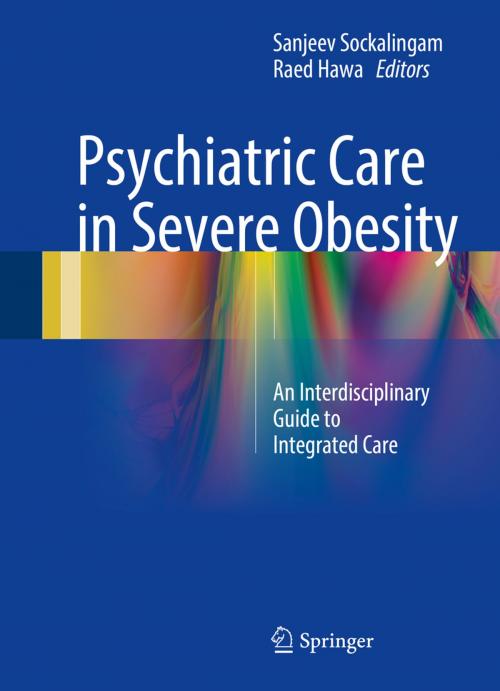Psychiatric Care in Severe Obesity
An Interdisciplinary Guide to Integrated Care
Nonfiction, Health & Well Being, Medical, Specialties, Family & General Practice, Psychiatry| Author: | ISBN: | 9783319425368 | |
| Publisher: | Springer International Publishing | Publication: | December 16, 2016 |
| Imprint: | Springer | Language: | English |
| Author: | |
| ISBN: | 9783319425368 |
| Publisher: | Springer International Publishing |
| Publication: | December 16, 2016 |
| Imprint: | Springer |
| Language: | English |
This book is designed to present a comprehensive, state-of the-art approach to assessing and managing bariatric surgery and psychosocial care. Unlike any other text, this book focuses on developing a biopsychosocial understanding of patients’ obesity journey and psychosocial factors contributing to their obesity and its management from an integrated perspective.
Psychiatric Care in Severe Obesity takes a 360 approach by covering the disease’s prevalence and relationship to psychiatric illness and social factors, including genetics, neurohormonal pathways and development factors for obesity. This book presents evidence and strategies for assessing psychiatric issues in severe obesity and uses common psychiatric presentations to feature the impact on bariatric surgery and key assessment features for weight loss. Concluding chapters focus on evidence-based psychosocial treatments for supporting patients with weight loss and bariatric surgery and includes educational tools and checklists for assessment, treatment, and care. Experts on non-pharmacological interventions such as mindfulness, cognitive-behavioral therapy and nutrition education describe treatment approaches in each modality, concluding with pharmacological approaches for psychiatric conditions and eating pathology. Additional tools in the appendices support clinicians, making this the ultimate guide for managing psychiatric illness in patients suffering from severe obesity.
As obesity continues to grow in prevalence as a medically recognized epidemic, Psychiatric Care in Severe Obesity serves a vital resource to medical students, psychiatrists, psychologists, bariatric surgeons, primary care physicians, dietitians, mental health nurses, social workers, and all medical professionals working with severely obese patients.
This book is designed to present a comprehensive, state-of the-art approach to assessing and managing bariatric surgery and psychosocial care. Unlike any other text, this book focuses on developing a biopsychosocial understanding of patients’ obesity journey and psychosocial factors contributing to their obesity and its management from an integrated perspective.
Psychiatric Care in Severe Obesity takes a 360 approach by covering the disease’s prevalence and relationship to psychiatric illness and social factors, including genetics, neurohormonal pathways and development factors for obesity. This book presents evidence and strategies for assessing psychiatric issues in severe obesity and uses common psychiatric presentations to feature the impact on bariatric surgery and key assessment features for weight loss. Concluding chapters focus on evidence-based psychosocial treatments for supporting patients with weight loss and bariatric surgery and includes educational tools and checklists for assessment, treatment, and care. Experts on non-pharmacological interventions such as mindfulness, cognitive-behavioral therapy and nutrition education describe treatment approaches in each modality, concluding with pharmacological approaches for psychiatric conditions and eating pathology. Additional tools in the appendices support clinicians, making this the ultimate guide for managing psychiatric illness in patients suffering from severe obesity.
As obesity continues to grow in prevalence as a medically recognized epidemic, Psychiatric Care in Severe Obesity serves a vital resource to medical students, psychiatrists, psychologists, bariatric surgeons, primary care physicians, dietitians, mental health nurses, social workers, and all medical professionals working with severely obese patients.















